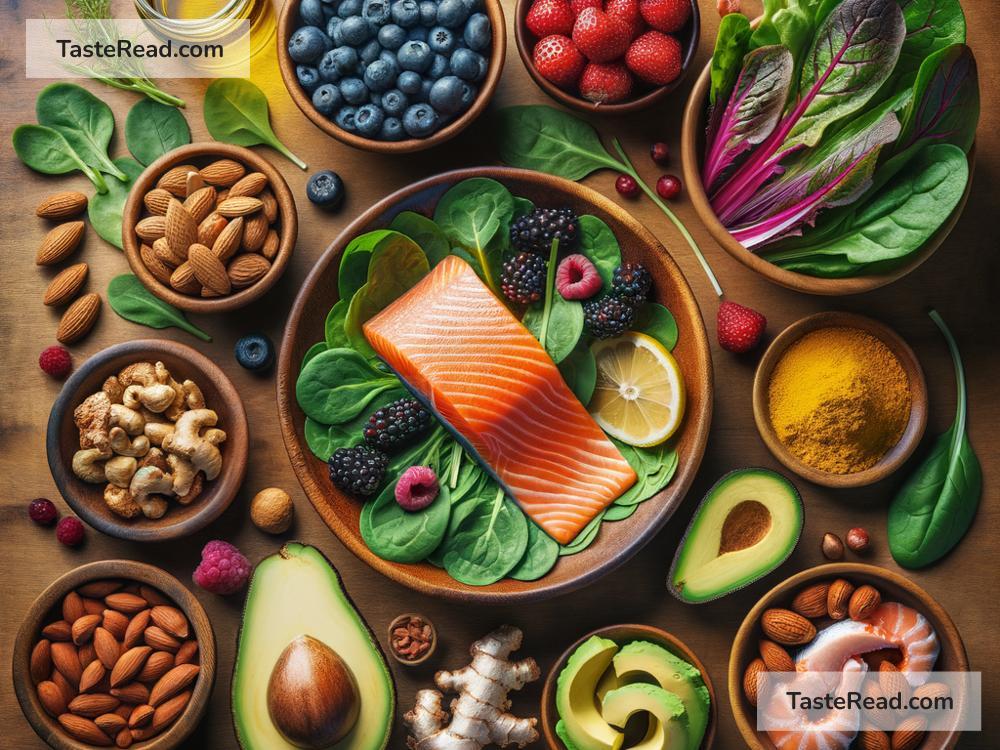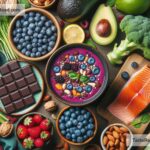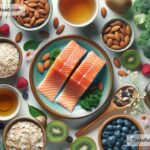Foods That Help Reduce Skin Infections
Our skin is the largest organ in our body, and it’s constantly exposed to germs, pollution, and other harmful elements that can lead to infections. Skin infections can be caused by bacteria, viruses, fungi, or parasites, and while medical treatment is often necessary, the food we eat can also play an important role in supporting healthy skin and fighting infections. In this blog, we’ll explore simple and nutritious foods that can help reduce skin infections naturally.
1. Fatty Fish for Omega-3 Fatty Acids
Fatty fish like salmon, mackerel, sardines, and tuna are rich in omega-3 fatty acids, which have anti-inflammatory properties. Inflammation can worsen skin infections, leaving your skin red and irritated. Omega-3s help soothe inflammation and boost your immune system so your body can fight off the germs causing the infection.
They also help keep your skin hydrated and healthy, reducing your risk of developing conditions that make the skin vulnerable to infection, like dryness or cracking. Aim to include fatty fish in your meals at least twice a week. If you’re vegetarian or vegan, consider alternatives like flaxseeds, chia seeds, or walnuts.
2. Garlic for Antibacterial Power
Garlic is like nature’s medicine. It’s packed with compounds like allicin that have strong antibacterial, antiviral, and antifungal properties. These substances can help kill harmful germs on the skin or reduce the severity of skin infections.
You can eat raw garlic by adding it to your meals, soups, or salads. If you find the taste too strong, roasted garlic or garlic in a stir-fry is a milder option. Some people even use garlic in homemade skin treatments, but always talk to your doctor before applying it directly to your skin.
3. Turmeric for Healing
Turmeric is a bright yellow spice widely used in Indian cuisine, and it’s famous for its ability to reduce inflammation and fight bacteria. The active ingredient in turmeric, called curcumin, can help boost the healing process in your skin and lower the risk of infection spreading.
Adding turmeric to your diet is easy. Sprinkle it into soups, stews, or rice dishes, or mix ½ teaspoon of turmeric powder into a glass of warm milk with honey for a soothing drink. Just be sure to add black pepper, as it helps your body absorb curcumin more effectively.
4. Yogurt and Probiotics
Yogurt and other probiotic-rich foods like kefir, kimchi, and sauerkraut are excellent for your skin. These foods contain beneficial bacteria that support your gut health, which is closely connected to skin health. A healthy gut can strengthen your immune system and improve your body’s ability to handle infections, including those on your skin.
Plain, unsweetened yogurt is the best choice. You can eat it as a snack, mix it into smoothies, or use it as a base for dips. Bonus tip: You can also apply yogurt directly to your skin as a cooling mask to help soothe irritation caused by infections.
5. Leafy Greens for Vitamins
Leafy greens like spinach, kale, and Swiss chard are loaded with vitamins A, C, and E, which are vital for healthy skin. Vitamin A helps with skin repair, vitamin C boosts collagen production (keeping skin strong), and vitamin E provides antioxidant protection against skin damage.
These nutrients also help your body fight off the germs that cause infections and speed up healing. You can add leafy greens to your salads, soups, smoothies, or stir-fries to give your meals a healthy boost.
6. Honey for Natural Healing
Honey isn’t just good for sweetening tea or oatmeal—it’s also a natural remedy for fighting infections. Honey has antibacterial and anti-inflammatory properties that can help your skin recover faster. Manuka honey from New Zealand is especially well-known for its healing power, but regular raw honey works too.
You can enjoy honey by drizzling it on foods or mixing it into drinks. Alternatively, it can be applied directly to skin infections (with your doctor’s approval), as honey creates a barrier that keeps germs out while moisturizing the skin.
7. Citrus Fruits for Vitamin C
Oranges, lemons, grapefruits, and other citrus fruits are high in vitamin C, an essential nutrient for skin health. Vitamin C helps boost your immune system and speeds up wound healing, making these fruits great allies for combating and recovering from skin infections.
Drink fresh orange juice or add lemon slices to your water for a refreshing way to consume more vitamin C. Snacking on vitamin-rich fruits is another easy option for giving your skin extra care.
8. Nuts and Seeds for Zinc
Nuts like almonds, walnuts, and cashews, as well as seeds like pumpkin and sunflower seeds, are rich in zinc. Zinc is crucial for your immune system and helps heal damaged skin faster. It has been shown to reduce inflammation and prevent skin conditions like acne, which can sometimes lead to infections.
Snack on nuts and seeds throughout the day, or add them to smoothies, oatmeal, or baked goods for an extra boost of nutrients.
Final Thoughts
While food alone won’t completely cure a skin infection, eating the right kinds of foods can help your body fight off infections and recover faster. If you’re dealing with a persistent or severe infection, it’s important to consult a doctor for proper medical treatment.
By incorporating foods like fatty fish, garlic, turmeric, yogurt, leafy greens, honey, citrus fruits, and nuts into your diet, you’ll be giving your skin the nutrients it needs to stay healthy, strong, and infection-free. Eating well is one of the simplest ways to take care of your skin for years to come.


